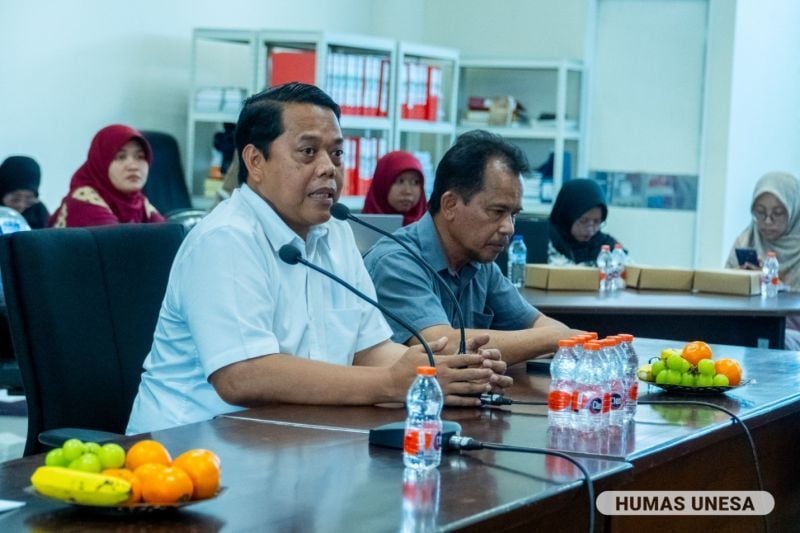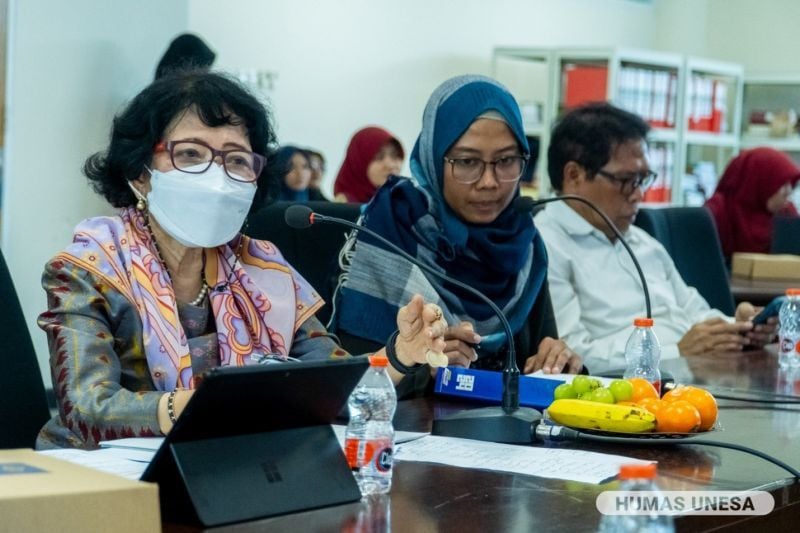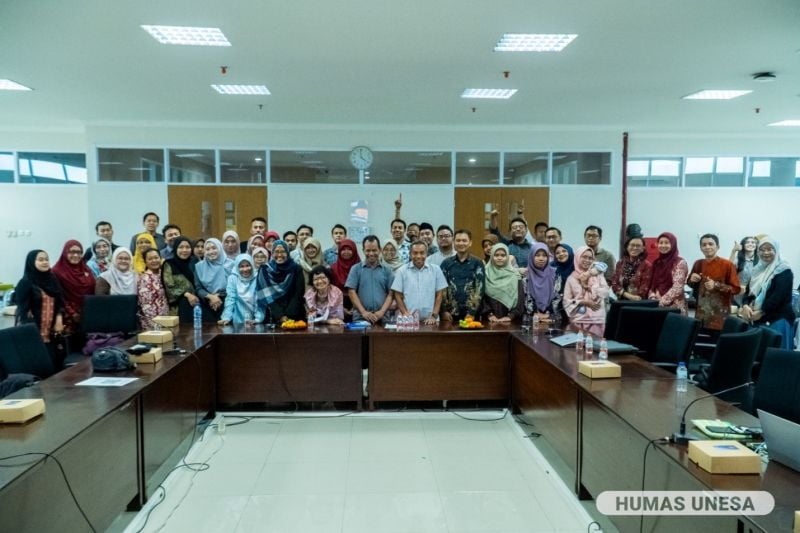Unesa.ac.id. SURABAYA–Surabaya State University (UNESA) continues to improve the quality of disability services. Apart from improving facilities, the quality of human resources also continues to be considered through a number of trainings. Most recently, through the Disability Excellence Subdirectorate, UNESA held a workshop in Room 901, 9th floor, Rectorate, UNESA Campus 2 Lidah Wetan, on Wednesday, 30 October 2024.
The training was attended by lecturer representatives from each of these study programs raised the theme 'How to Teach Individuals with Disabilities in Higher Education' which was discussed by two presenters, namely Pennee Narot from Khon Kaen University, Thailand, and Budiyanto, UNESA professor of disabilities.
currently opening the activity, Deputy Chancellor III for Research, Innovation, Ranking, Publication and the UNESA Science Center, Bambang Sigit Widodo, emphasized the importance of awareness and support from many parties for people with disabilities in higher education.
Apart from that, the need to emphasize steps -collaborative steps to improve services for students with disabilities to create an inclusive higher education environment.

UNESA Deputy Chancellor III opened the activity and emphasized the importance of collaboration to enrich innovation in the field of disabilities.
"Not all universities have "There is a high level of awareness regarding disability issues. Supporting facilities must continue to be improved gradually," he said.
In the material session, Budiyanto explained the concept of learning innovation for disabled students through an assistive technology approach. This technology is designed to help people with disabilities in carrying out daily activities.
He explained that services for students with disabilities were divided into three approaches, namely segregation, mainstream (integrated in regular schools for those who are able to attend), and inclusion (unification without differentiation).
However, inclusion is now widely applied. "The key word for assistive technology is adaptive innovation, it doesn't always have to be high-tech. "Low-tech products can also be very useful, if they can be adjusted to your needs," he said.

Pennee Narot from Khon Kaen University said a lot about the challenges and opportunities of creating an inclusive campus environment.
Professor at the Faculty of Education ( FIP) continued, universities need to build collaboration with the disability community, and emphasize the importance of in-depth assessments to find out the needs and dreams of every student with disabilities, so that the curriculum can be adapted appropriately.
"In certain courses, they must get assistance and material that can be compared with other friends," he added.
Pennee Narot, in the next material session, shared the challenges of inclusive education in Thailand, especially regarding the role and position of teachers with disabilities.
"Education 4.0 requires us to think creatively, critically and take initiative. Media literacy and flexible skills are also very much needed," he said.
According to him, education for people with disabilities at university level must prioritize adaptation, including by providing support to students with disabilities, for example by providing companions who are given scholarships.

Resources and participants along with all experts and staff from the Directorate of Disabilities, Surabaya State University.
Pennee Narot also conveyed the importance of an atmosphere of care for students with disabilities, in addition to developing soft skills. "Cross-sector collaboration needs to be built, so that support for students with disabilities can be fulfilled," she added.
p>The material session guided by the moderator, Khofidatur Rofiah, provoked many questions from the participants, one of which was related to differences in the delivery of material for students with disabilities.
Pennee Narot emphasized that university regulations must be able to accommodate special needs, for example through modifying the Semester Learning Plan (RPS).
Meanwhile, Budiyanto added the importance of family in supporting the development of behavior of students with disabilities, in addition to the role of lecturers.
One of the participants, Dyandra Armyta, lecturer at the Bachelor of Management Study Program, said that this workshop provides great benefits, especially for study programs that have students with disabilities.
"We hope that there will be further assistance for lecturers to provide appropriate services for students with disabilities," he said.[*]
***
Reporter: Fatimah Najmus Shofa (FBS), and Sindy Riska Fadillah (Fisipol)
Editor: @zam*
Photo: UNESA PR Team
Share It On:






